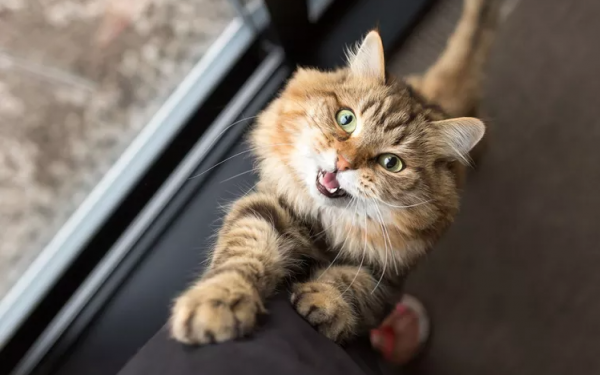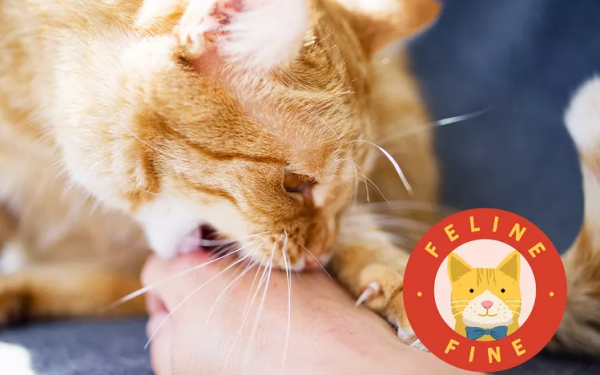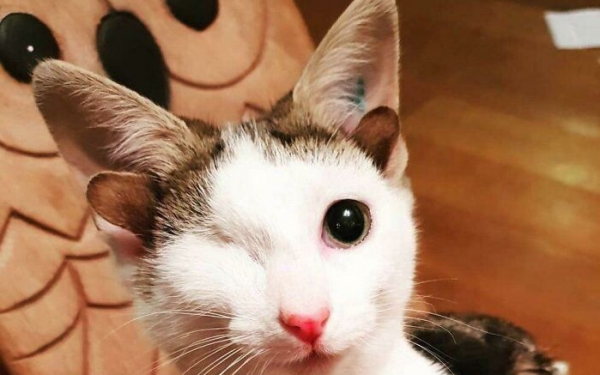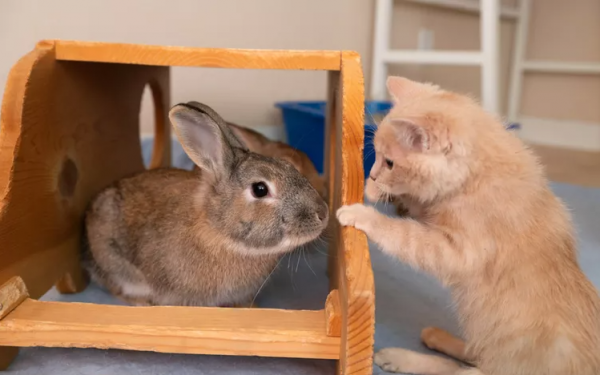New Study Suggests There's a Good Reason to Baby Talk to Our Cats
If your cat knows your voice, he's probably ignoring you on purpose.
We're all guilty of talking to our pets in a baby voice—so much so that cats might even be able to recognize it.
According to a new study, French researchers conducted three series of tests using 16 cats. They found that cats are not only more responsive to their owner's voice than a stranger's, but they also might be able to tell when their human is speaking directly to them. Why? Because of their ability to distinguish between their owner's cat-directed "baby voice" and their voice when speaking to other humans.
"It's further evidence showing that there is attachment between cats and humans. And I think that's important to keep in mind, because for decades, we have been thinking that cats are very independent creatures, that they just want food and shelter, and that they don't care about humans," Charlotte De Mouzon, lead author of the study, told Gizmodo.
Prior to conducting the tests, experimenters recorded the owners saying sentences they would typically say to their cat using two different tones. The owners first asked "Do you want a treat?" and "Do you want to play?" using "cat directed speech" (CDS)—aka baby talk. They also said "See you later" and "How are you?" in CDS.
They then repeated those phrases in the way they would normally speak to another adult.
The owners were also recorded saying their cat's name. Sixteen women—not the cat owners—also spoke the cats' names into a microphone. These sound recordings were later used in the tests.
The three tests all took place at the cat's home with both the owner and a researcher present, but the owners did not interact with their cats during the experiment. Testing was done at the cat's home to prevent stress-induced behaviors that would conflict with the study due to being in a new environment.
Do Cats Like Music? Here's What the Experts Say
To measure the magnitude of the cat's responses, experimenters used video recordings and special software to track the duration of the cat's behavioral reactions before and after playing the recordings. These findings were then given a "behavioral score." The higher the score, the larger reaction the cat had to the specific voice recording.
Here's how the tests went:
First, researchers evaluated how the cats responded to a stranger calling their name. Out of five recordings played for the cat, only the fourth one was the owner saying the cat's name. Ten of the 16 cats reacted upon hearing their owner and were otherwise disinterested. In the second test, researchers played the cat's owner saying the same phrase five times. Four recordings were identical, but one of them played the owners using their baby voice. A majority of the cats reacted to their owner's high pitched voice, implying they can hear a difference. Only strangers' voices were used in the last test. They spoke the same phrase five times but used their baby voice in one of the recordings. This time, 11 out of 16 of them didn't register a significant behavioral response to the stranger's baby voice:max_bytes(150000):strip_icc():format(webp)/cats-react-to-baby-talk-from-owners-study-1207301813-2000-98464facdd8b40718e7da5465f00ee78.jpg)
Based on their findings, researchers concluded that cats can usually distinguish when their owner (and only their owner) is talking to them. However, all the cats in the study were indoor cats. That could have influenced why the cats didn't react to the unknown voices, as they aren't typically exposed to unfamiliar people.
If you pull out the baby voice and still can't get your cat's attention, try these tips for bonding with your cat.















